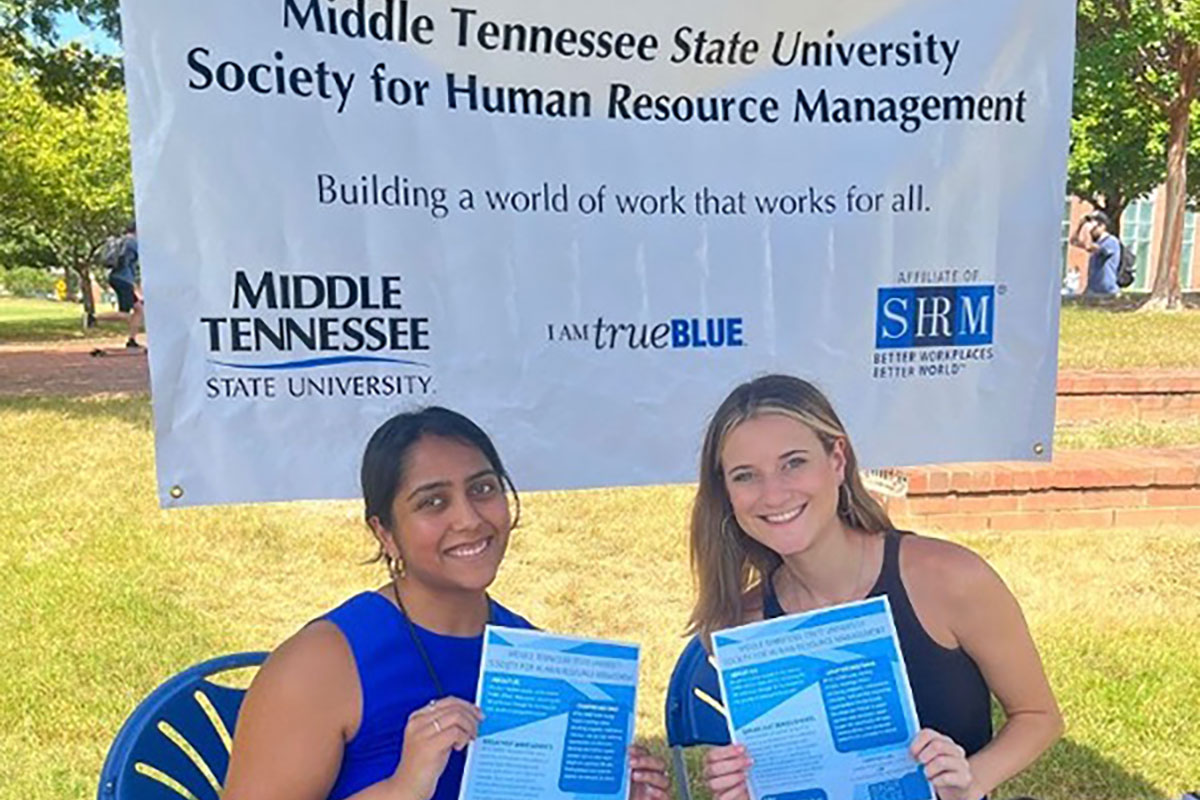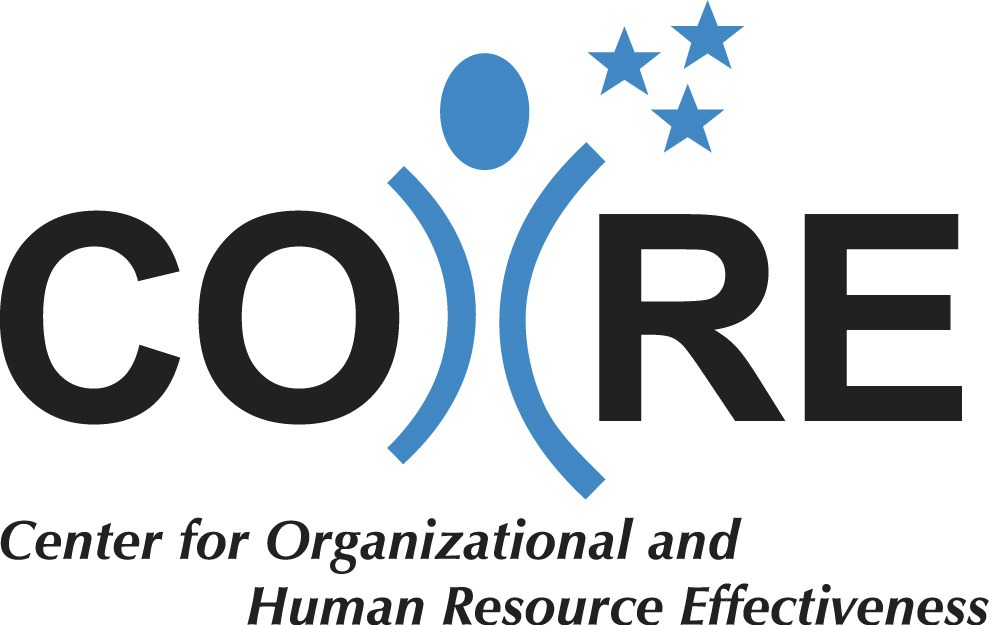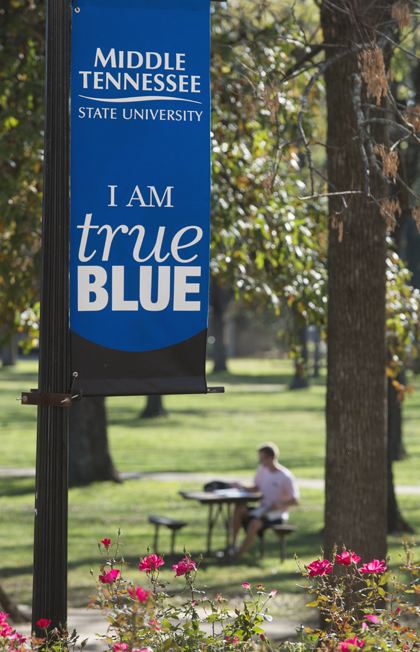
Industrial-Organizational Psychology
Learn to assess and improve individual, group, and organizational dynamics in the work environment with hands-on experience.
Industrial-Organizational Psychology, B.S.
Impact people; impact businesses
- Do you want to learn how to improve the lives of people at work?
- Do you want to combine your interest in business with your interest in psychology?
- Interested in making jobs more satisfying, workers more productive, and training leaders to treat employees fairly?
Industrial and Organizational Psychology (I-O) is the psychology of the workplace and employee behaviors. Learn how to hire and train effectively by applying evidence-based practices to organizational challenges. MTSU is one of only a few universities across the nation to offer this degree. The curriculum is aligned with both the Society of Industrial-Organizational Psychology (SIOP) and the Society for Human Resource Management (SHRM) standards. Industrial-Organizational Psychology addresses a variety of human resources and organizational issues, such as:
- Employee recruitment and selection
- Training
- Compensation
- Employee stress, health, and well-being
- Retention & turnover
- Performance management
- Job analysis
- Employee engagement
The major in Industrial-Organizational Psychology is designed to (a) prepare students for entry-level positions in human resources departments and (b) provide a background for students wishing to pursue graduate work in industrial-organizational psychology or related fields. Students can get hands-on work experience through internships or the opportunity to work with our on-campus consulting firm, the Center for Organizational Human Resource Effectiveness (COHRE).
Students are encouraged to join the MTSU Society for Human Resource Management (SHRM) and attend breakfast networking events and workshops curated for their professional development. MTSU SHRM provides I-O Psychology majors with the opportunity to learn from area professionals, get matched with HR mentors, apply for scholarships, and attend I-O relevant conferences.
What our alumni are saying:
"When I interviewed for my first job I felt so prepared to answer the questions because of what I learned in my classes."
"My education has given me a broad understanding of what goes on in human resources."
"My Bachelor's Degree in I-O Psychology from MTSU helped me land a dream job in HR. I started at MTSU as a general Psychology major. The class "Seminar on Careers in Psychology" introduced me to the HR field as a potential career choice. HR is the perfect intersection of business and psychology. I changed my major to I-O Psychology as quickly as possible. My passion grew in every class thanks to the professors who taught from their own real-world experience as HR professionals. I landed an entry-level job with an outsourced HR company in Nashville and have worked my way into an HR Director position with the company after just 4 years. I have obtained certifications from HRCI and SHRM and am now serving on the MT|SHRM board of directors helping other HR peers with their professional development. I am eternally grateful to the MTSU I-O Psych program for helping me get to where I am today!"
"I definitely feel that my education has set me up for future success."
"I-O psychology taught me the importance of taking care of employees and treating them right."
"I was truly shocked at how closely my degree tied into a real-world scenario of an HR department."
If you live in one of these states: GA; you may be able to attend MTSU at in-state rates under the Academic Common Market program.
News Briefs

How does bias impact selection decisions?
Several I-O faculty and students have been conducting research to address this question from different perspectives. Dr. Alexander Jackson and his team have examined the impact of job hopping on hiring decisions. Job hoppers were consistently viewed as less qualified, less trustworthy, and less committed and were less likely to be hired than those who did not hop jobs. The teams of Dr. Mark Frame, Dr. Alexander Jackson, and Dr. Van Hein have also examined appearance biases. Dr. Mark Frame and his team examined whether the visibility of tattoos on job candidates impacted the hiring decisions. They found that when two candidates were equally qualified, there was bias against the candidate with visible tattoos. Jackson’s team examined the attractiveness bias in a hiring context. They found that job applicants who are viewed as less attractive are perceived as having lower efficacy and were less likely to be hired. Van Hein’s team examined the effect of weight bias on promotion ratings. They found that overweight women and underweight men are rated less qualified when than their counterparts when applying for promotion.

Learning about human resources opens doors
Speakers such as Kathy Medlin, director of organization development at Comdata, Brentwood, bring authentic workplace examples and experiences to members of the student chapter of the Society for Human Resource Management (SHRM) at MTSU. This national organization seeks to advance the human resource profession and, in addition to speakers, provides mentoring programs; networking opportunities; and exposure to activities such as recruitment and selection, compensation and benefits, labor relations, and performance appraisals. Because there are not enough people with skills such as these, the demand exceeds the supply in today's work world.
News Briefs
How does bias impact selection decisions?

Several I-O faculty and students have been conducting research to address this question from different perspectives. Dr. Alexander Jackson and his team have examined the impact of job hopping on hiring decisions. Job hoppers were consistently viewed as less qualified, less trustworthy, and less committed and were less likely to be hired than those who did not hop jobs. The teams of Dr. Mark Frame, Dr. Alexander Jackson, and Dr. Van Hein have also examined appearance biases. Dr. Mark Frame and his team examined whether the visibility of tattoos on job candidates impacted the hiring decisions. They found that when two candidates were equally qualified, there was bias against the candidate with visible tattoos. Jackson’s team examined the attractiveness bias in a hiring context. They found that job applicants who are viewed as less attractive are perceived as having lower efficacy and were less likely to be hired. Van Hein’s team examined the effect of weight bias on promotion ratings. They found that overweight women and underweight men are rated less qualified when than their counterparts when applying for promotion.
Learning about human resources opens doors

Speakers such as Kathy Medlin, director of organization development at Comdata, Brentwood, bring authentic workplace examples and experiences to members of the student chapter of the Society for Human Resource Management (SHRM) at MTSU. This national organization seeks to advance the human resource profession and, in addition to speakers, provides mentoring programs; networking opportunities; and exposure to activities such as recruitment and selection, compensation and benefits, labor relations, and performance appraisals. Because there are not enough people with skills such as these, the demand exceeds the supply in today's work world.
Related Media

The Industrial/Organizational Psychology major is designed to prepare students for roles in human resources departments of businesses, non-profits and government, and to provide a background for students wishing to pursue graduate work in industrial/organizational psychology, or related fields. Human resources is a growing area in the workplace, and demand exceeds supply for people with the skills learned in the Industrial/Organizational Psychology major. Potential career options include:
- Compensation analyst
- Instructional designer
- Employee benefits consultant
- Employee relations manager
- Human resource generalist
- Human resource manager
- Talent Acquisition specialist
- Talent Management director Training
- Development manager
- Compliance specialist
- Director of staffing operations
Employers of MTSU alumni include
- Bridgestone Inc.
- Premise Health HCA - Hospital Corporation of America
- Hulu
- Nissan
- USA Edelman
- SMS Holdings Corporation
- Carvana
- Dollar General
- Vanderbilt Hospital
- AmerisourceBergen
- Tennessee Dept. of Transportation



Handbooks

CONTACT US

Please fill in the form below and we will contact you very soon











